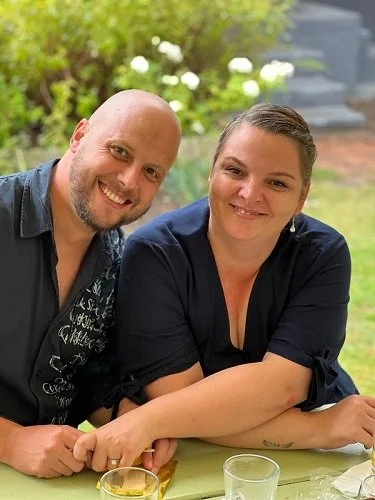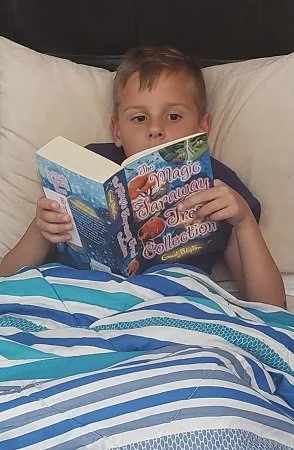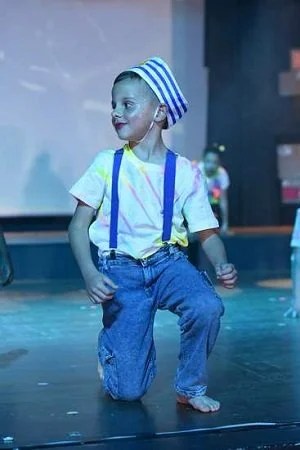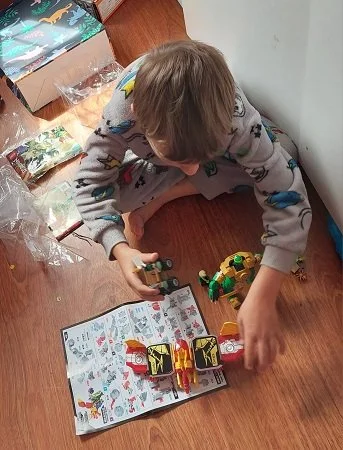The grief no-one talks about: autism, parenting, and a different kind of loss
Society has a narrow lens when it comes to autism, writes the mom of a nine-year-old diagnosed with high-functioning autism. “Many find it easier to label a little boy than to challenge their own biases and become better, more inclusive adults. And so, they never get to know the kind, gentle, snuggly, clever little boy that I get to call my son.” Read social worker Mariette Cawood’s moving letter – “not a story of pity, but a call for awareness.”
Warren and Mariette Cawood
Grief.
A small word with an emotional weight far greater than its five letters could ever contain. Most of us associate it with the loss of a loved one, a deep sorrow tied to death. But anyone who has truly felt grief knows it’s far more complex - and far more universal - than that. Grief comes in many forms: the loss of identity, the loss of independence, and, in my case, the loss of something far more intangible - the loss of understanding and inclusion for my child.
In 2024, after several turbulent years filled with uncertainty, we finally received a diagnosis for our son: Level 1 Autism, more commonly referred to as high-functioning autism. While the label brought clarity and relief - it finally gave a name to the unique way our little boy experiences the world - it also brought with it a grief I never anticipated.
Not grief for him, but grief for others. Because in receiving this diagnosis, I’ve come to understand that many people will never truly see or know the remarkable human being that is my son.
You see, society has a narrow lens when it comes to autism. There’s a preconceived image - a checklist of behaviours and appearances people expect. When someone doesn’t “fit the mould,” confusion turns to judgement. And judgement turns to exclusion.
Mariette & Warren’s son West, engrossed in a book
My son is nine. He’s bright, affectionate, and curious. He loves reading, word searches, and Sudoku. He can get lost for hours in ideas that fascinate him. But because he doesn't always engage with instructed activities, he's labelled as "rude." Because he needs more time to process his emotions, he's viewed as "disrespectful." And because he doesn’t connect in the same way as his peers, he’s often left out. The world, with all its opportunities to understand, still defaults to misunderstanding.
This is where my grief lives.
I grieve for the birthday parties he isn’t invited to. For the group games he’s excluded from. For the friendships that never get the chance to grow. I grieve for a society that continues to expect children like mine to adapt, rather than learning to meet them halfway. And I grieve for every adult who, rather than seeking understanding, chooses the comfort of labels and assumptions.
But more than that, I grieve for them - the teachers, caregivers, peers - who will never get to know the kind, gentle, snuggly, clever little boy that I get to call my son. They are missing out, far more than he is. Because once you truly see him, really see him, you can’t help but love him.
The most painful irony? He so badly wants to be part of the world that seems to be doing everything it can to leave him out.
Also listen to Mariette speaking candidly about dealing with not only the stigma, but misconceptions attached to high-functioning autism.
Perhaps what stings the most is the double standard. At nine years old, my son is already burdened with the expectation to “know better,” to behave in ways that no other neurotypical child is expected to. He is held to a standard that ignores the very diagnosis meant to help explain his difference. And in that space, understanding is replaced with frustration, support with criticism.
We live in a time with unprecedented access to information. We have books, podcasts, experts, communities—all ready to help us unlearn and reframe. Yet, for many, it remains easier to label a little boy than to challenge their own biases and become better, more inclusive adults.
This is not a story of pity. It is a call for awareness. A reminder that grief doesn’t always follow a funeral. Sometimes it follows the silence that surrounds a child sitting alone. Or the ache of watching your little boy slowly realise he’s not being chosen - again.
But it’s also a story of hope.
Because I believe we can do better. I believe that with openness and education, we can move past stereotypes and toward empathy. That we can create spaces where every child - neurodivergent or not - feels valued, understood, and celebrated.
And maybe, just maybe, if we start seeing with our hearts and not just our eyes, we’ll discover that the very people we once misunderstood are the ones who have the most to teach us about kindness, resilience, and unconditional love.
More about Mariette Cawood
Mariette Cawood is a social worker working in the medical field, based in Cape Town. She has practised for 20 years, active in several locations in South Africa as well as abroad and in several fields of social work.
Thumbnail image: Pexels. Model used
Photographs of Warren, Mariette and West Cawood: supplied



